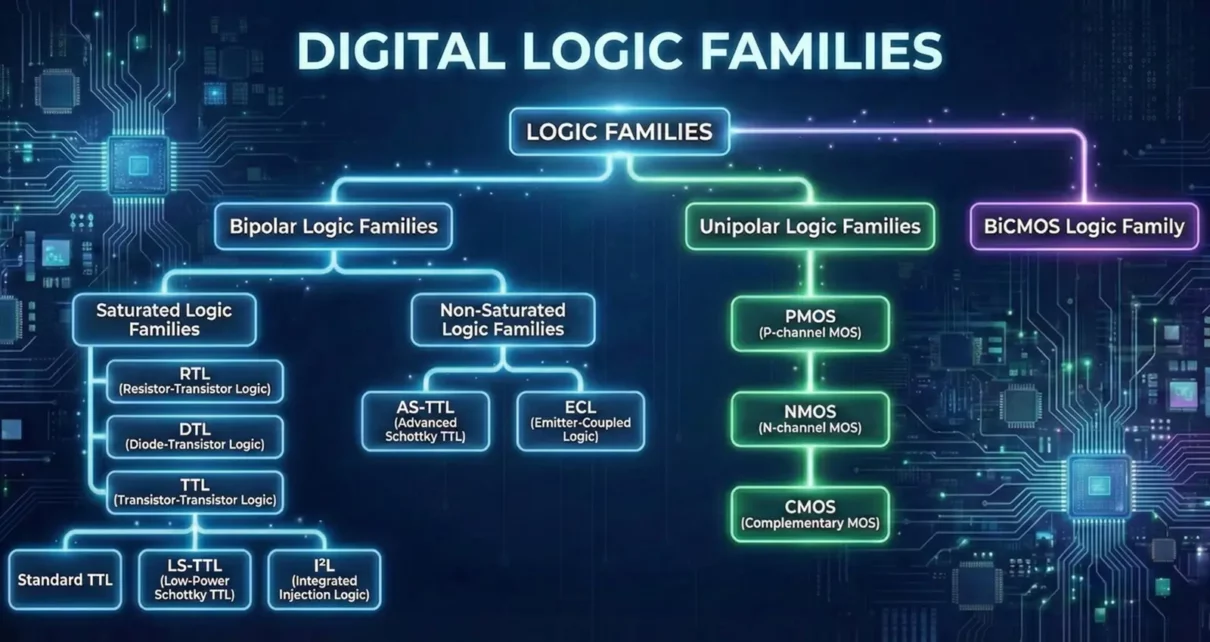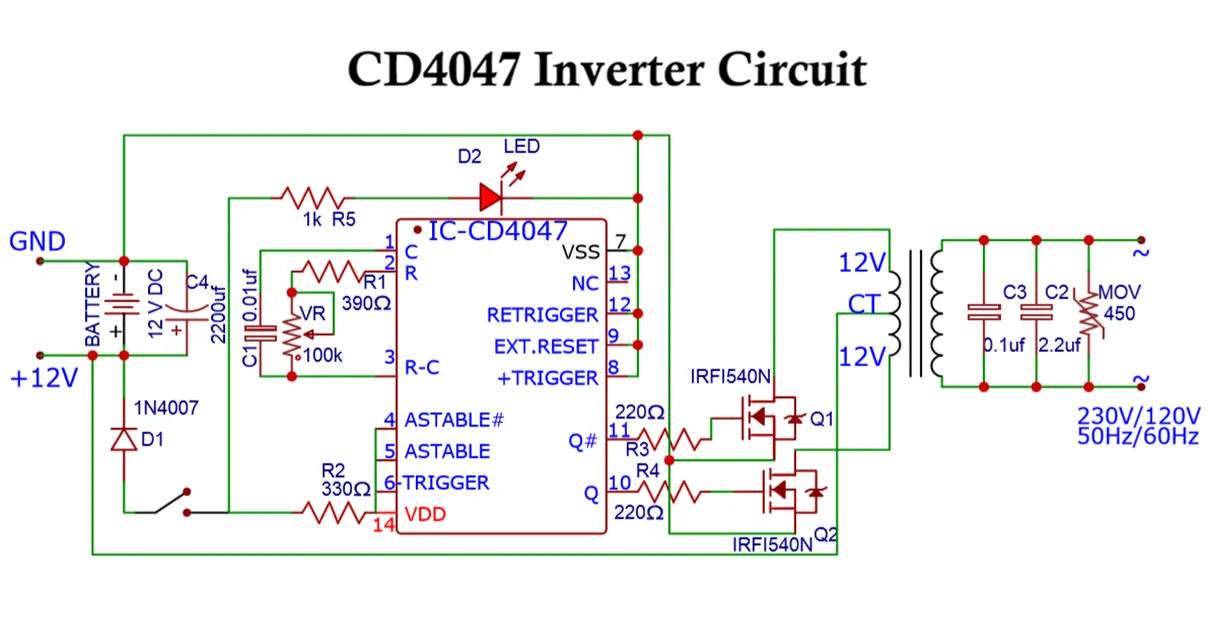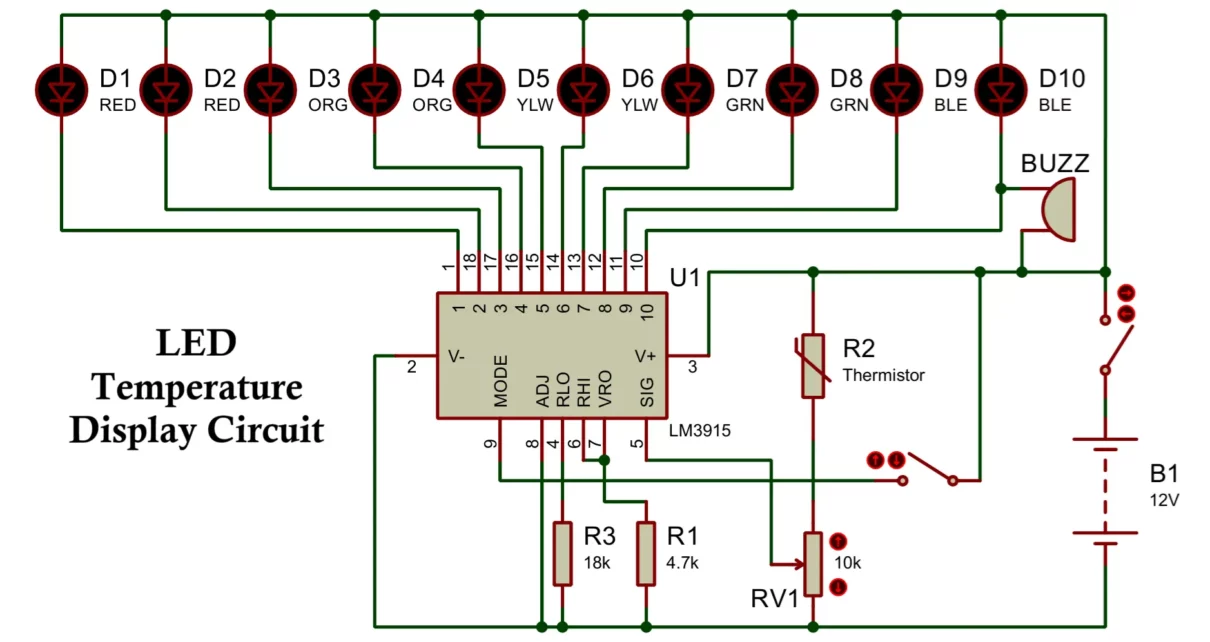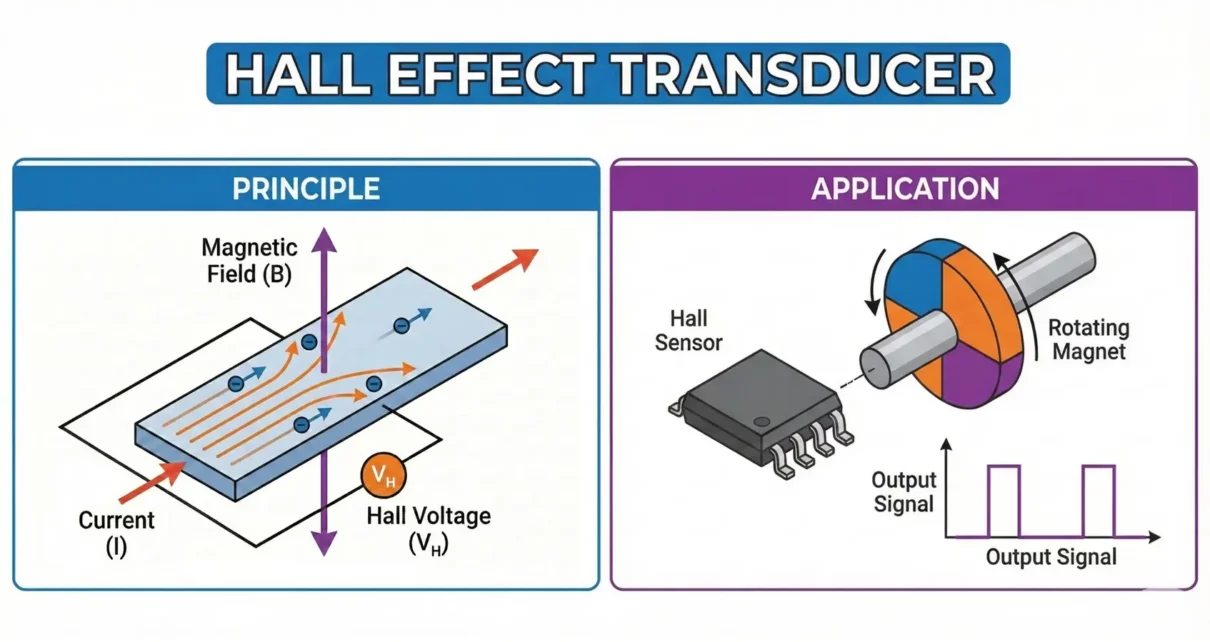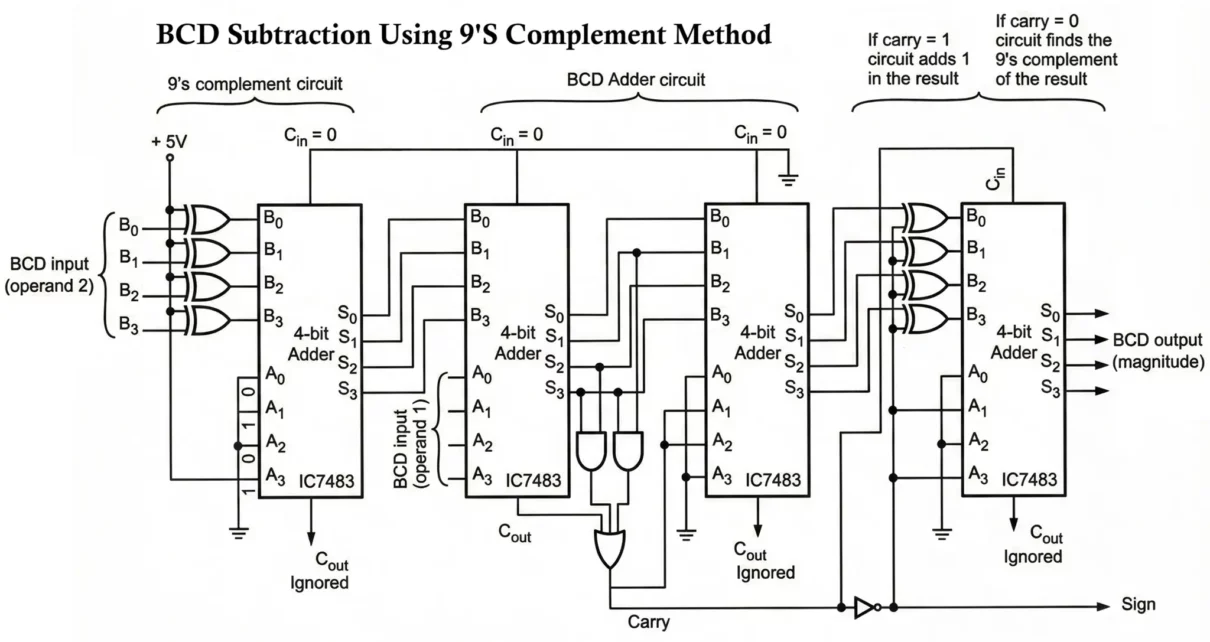Learn about digital logic families, their classifications, key characteristics, and how they differ in speed, power consumption, and practical applications in digital electronics. Digital electronic systems operate using binary logic levels, commonly represented as logic ‘0’ and logic ‘1’. The circuits that process these logic levels are built using logic gates, and these gates are […]
Integrated circuits (ICs)
100-Watt CD4047 Inverter Circuit Construction, Working and Limitations
In this project, we will make a CD4047 Inverter Circuit, and we will also discuss why this type of inverter is not a good or reliable solution for real-world applications. An inverter is an electronic device that converts DC voltage into AC voltage. Inverters play a very important role in power backup systems, especially in […]
LED Temperature Display Circuit with LM3915 and Thermistor
Temperature monitoring is a fundamental requirement in modern electronic systems, ranging from consumer appliances and industrial equipment to power electronics and laboratory instruments. An LED temperature display circuit using LM3915 and a thermistor offers a simple, reliable, and visually intuitive way to indicate temperature variations without the complexity of microcontrollers or digital displays. This circuit […]
Hall Effect Transducer Construction, Working and Applications
A Hall effect transducer is a sensor that detects a magnetic field and converts it into a proportional electrical signal using the Hall effect phenomenon. It is widely used for current sensing, position sensing, speed detection, proximity sensing, and magnetic field measurement in industrial, automotive, and consumer electronic systems. Unlike conventional mechanical or contact-based sensors, […]
BCD Subtractor Circuit Diagram, Truth Table, Working and Applications
While a BCD adder performs decimal addition using binary hardware with correction logic, a BCD subtractor performs the subtraction of one BCD number from another and produces a valid BCD result. This requires additional logic because simple binary subtraction does not automatically produce valid BCD outputs. Digital systems frequently need to perform arithmetic operations such […]
BCD Adder Circuit Diagram, Truth Table, Working and Applications
Let’s explore the BCD Adder Circuit and learn how it adds decimal digits using Binary Coded Decimal (BCD), a digital coding system in which each decimal digit is represented using a 4-bit binary number. BCD arithmetic is widely used in digital systems where calculations must remain in decimal form, such as calculators, clocks, and display-based […]
